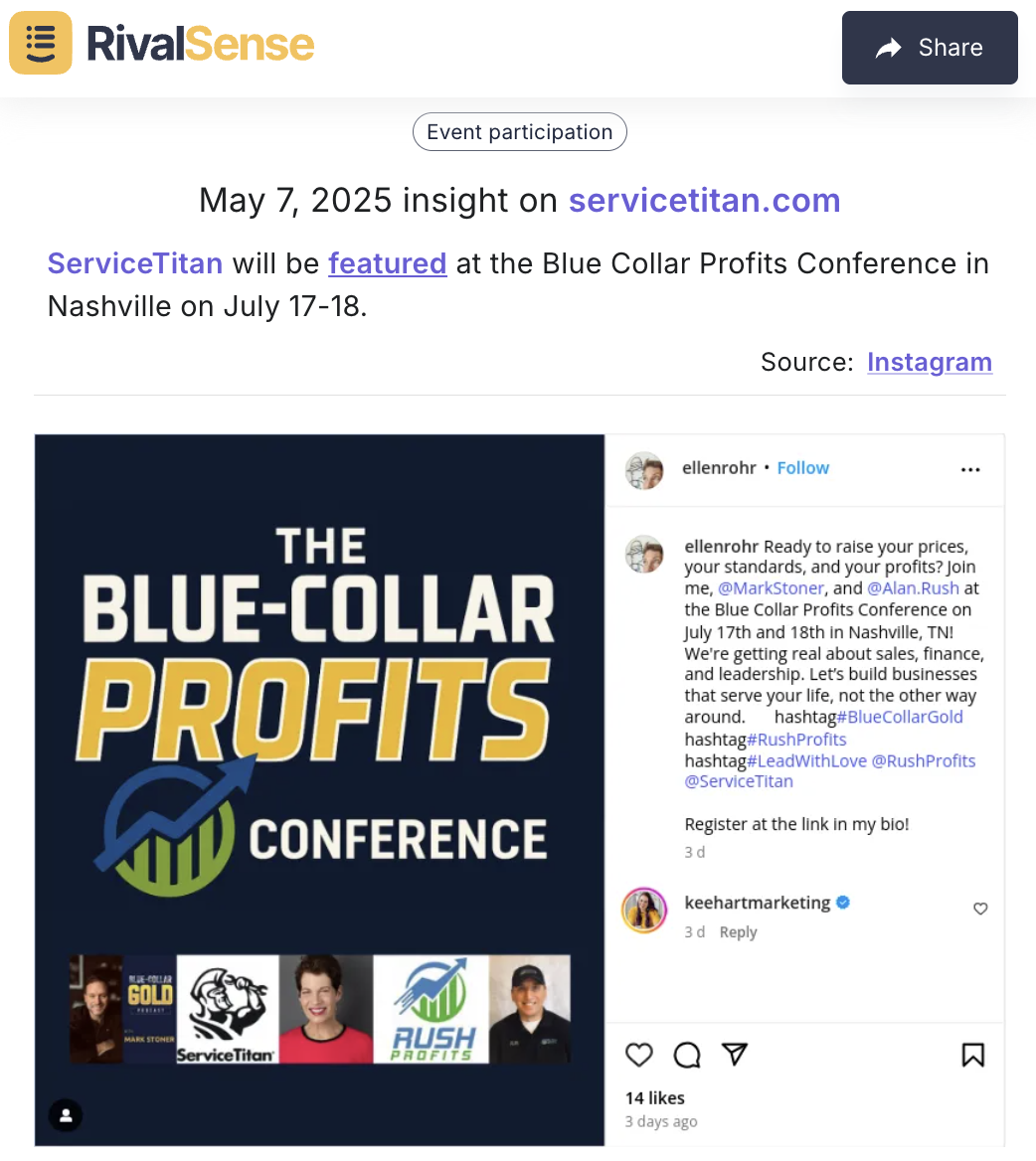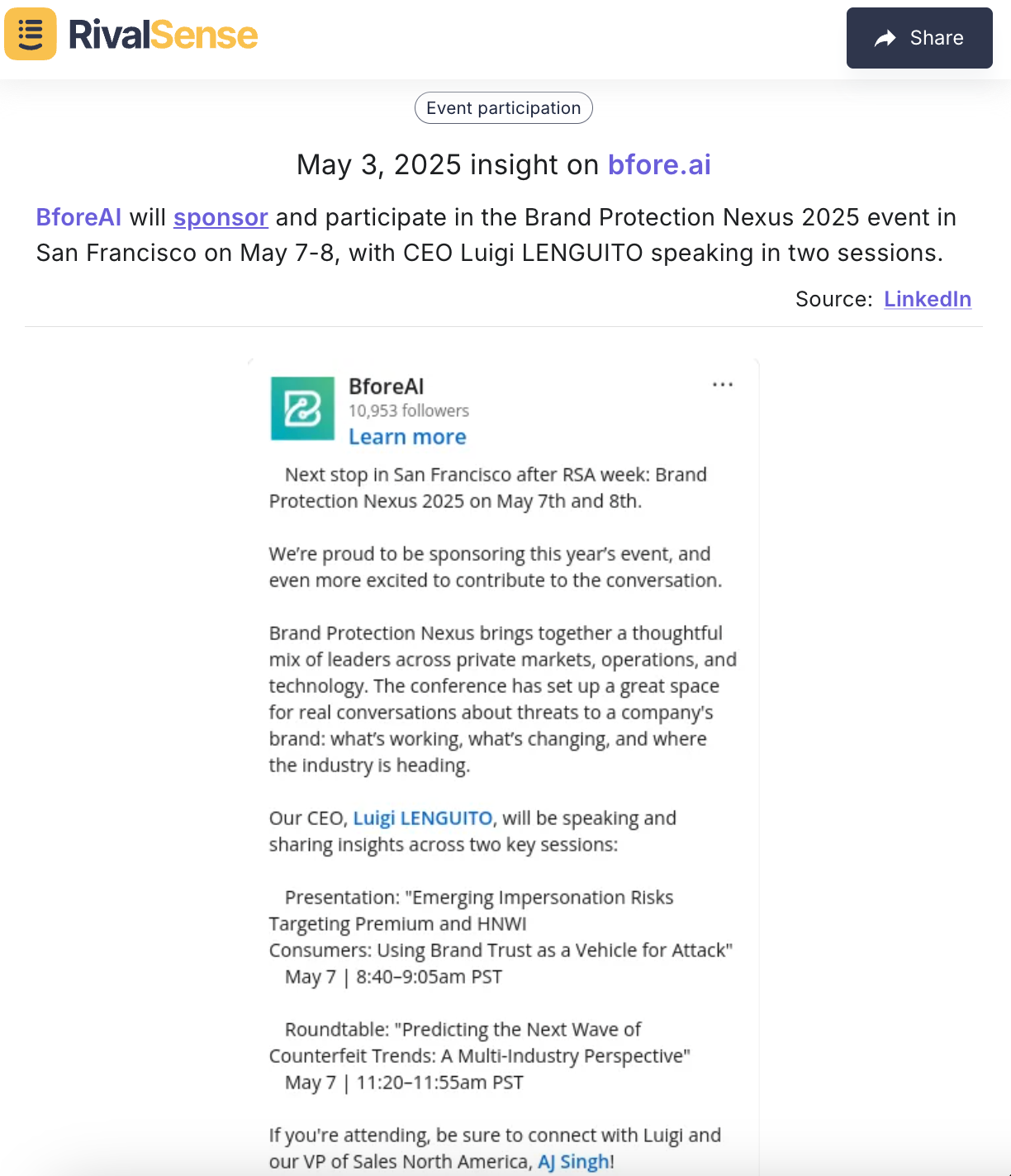Should I Attend This Conference? A No-Nonsense Guide for B2B Founders
As a B2B founder, your time is one of your most precious resources. Every hour you spend away from your core business—whether that's building the product, closing deals, or refining your go-to-market strategy—comes at a cost. So when that flashy industry conference invitation pops into your inbox, it’s worth asking: Is this really worth it?
The short answer? It depends.
Conferences Can Be High-Impact—But Only If You're Strategic
There’s no doubt that the right conference can lead to new business. Potential clients love speaking directly with founders. It’s your chance to establish authority, kickstart relationships, and potentially land deals that would take months to develop over cold emails or Zoom calls.
That said, we've all seen founders bounce from one event to the next, racking up costs and distractions with very little return. Often, these decisions are driven by ego (“I want to be seen on stage”) rather than by strategic thinking. If you're attending conferences simply to feel busy or network aimlessly, you're not investing—you’re procrastinating.
To help you cut through the noise, here’s a no-nonsense framework with five essential questions to decide whether attending a particular conference makes sense for your business.
1. Are Your Competitors Attending This Conference?
One of the easiest shortcuts to evaluating a conference's value is competitor intelligence gathering. If your main competitors are showing up, it’s often because they’ve already validated the ROI. Either their leads are there, or they’re protecting their market presence.
You can use competitor tracking software like RivalSense to watch competitors and see which events they’re attending or sponsoring.

It's part of the broader competitive intelligence process—understanding where your rivals are investing time and why.
2. Can You Access the Attendee or Speaker List Beforehand?
Without visibility into who will be there, you're essentially walking in blind. But if you can get access to the attendee or speaker list in advance, you can filter for qualified leads and set up meetings ahead of time. This transforms a passive event into a lead generation sprint.

This is also where market intelligence reports come into play. They help you understand whether the target audience aligns with your buyer personas and whether it's the right venue to pitch your solution.
3. Is the Conference in a City Where You Can Schedule Other Meetings?
If you’re going to be on a plane anyway, make it count. Consider whether the event is located in a hub where you can schedule investor check-ins, prospect meetings, or even visit current clients. This turns one potential ROI channel into several.
4. What Are the Travel and Accommodation Costs?
Don’t underestimate the costs—even when it comes to travel. Are there budget-friendly options that keep total expenses in line with expected returns? If the cost is too high for too little potential gain, consider skipping or sending a team member instead.
5. Do You Have Better Things to Do for Your Business?
This one’s simple but essential. Are you in the middle of a product sprint? Are deals sitting in your CRM waiting to be closed? Would customer feedback be better gathered through surveys or direct outreach? Don’t let vanity metrics lead you into thinking a packed conference agenda equals progress.
Final Thoughts
The importance of competitive intelligence or client intelligence is not just about tracking others—it’s about making smarter decisions for your business. Conferences can be great, but only if they’re aligned with clear goals. Use this checklist next time, and you’ll stop wondering whether to attend—and start knowing whether it’s the right move.
